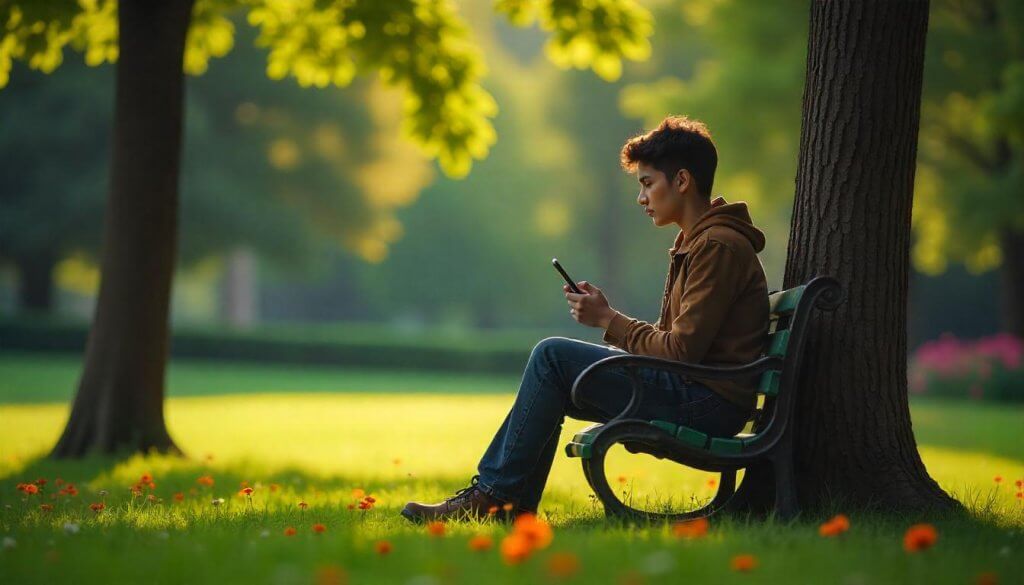Understanding the Psychology of Trust
Considering a weekend getaway after two dates might seem adventurous, but trust doesn’t appear out of nowhere—it builds slowly through consistent behavior, open communication, and shared positive experiences. For many women, especially those with a history of emotional hurt, past disappointments, or certain upbringings, trust doesn’t come easily. According to psychologists, the initial phase of infatuation often creates the illusion of trust. People tend to present only their best sides at first, while their true character—flaws included—emerges later.
So if a woman still feels unsure after two dates, that’s not just normal—it’s wise. It’s simply too soon to really know who someone is. Yet trust isn’t only an emotional reaction; it’s also a conscious decision. Psychologist Kayla Knopp put it succinctly: “Trusting someone is a choice, not just a feeling.” Or, as Hemingway once wrote, “The best way to find out if you can trust somebody is to trust them.”
Still, that leap of faith is harder when previous experiences have made someone fearful of being hurt again. As psychologist Irina Mlodik explains, the more value we assign to a relationship, the more we fear losing it. And when that fear leads to constant tests or second-guessing, it can sabotage the very connection we long for. The key, experts say, lies in balance: don’t rush headfirst, but don’t shut down either. If someone has shown themselves to be thoughtful and consistent, that could be reason enough to consider taking a small step forward.
The Influence of Social Norms
Beyond personal feelings, social conditioning also shapes a woman’s decision. There are unspoken rules around how quickly relationships should progress. Many believe it’s premature to define the relationship after just a few dates, let alone take a weekend trip together. Family and friends may raise eyebrows or voice concern—after all, heading off with someone you barely know can seem impulsive.
However, modern dating often moves faster than tradition allows. A week of deep, daily texting can create a false sense of intimacy. And while digital communication can foster closeness, it still lacks the nuance and unpredictability of in-person interaction. Still, if a man has mutual friends who speak highly of him or he’s open about his personal life—his job, his family, his social world—those “social proof” cues can strengthen the case for trust. Conversely, someone who shares little or keeps his world off-limits may raise suspicions, even unintentionally.
Cultural upbringing also plays a role. For some, a weekend getaway after two dates feels natural. For others, it’s an intimate step reserved for someone almost like family. The bottom line: she should follow her instincts, not just others’ opinions.
Observing the Signs: Reliability in Practice
When evaluating whether a man is trustworthy, actions speak louder than charm. Has he followed through on promises? Respected her boundaries? Shown up when he said he would? Even small, consistent gestures—sending that promised photo, calling when agreed—form the foundation of trust. In contrast, inconsistencies, evasiveness, or even small lies early on may signal trouble ahead.
It’s also reasonable to verify the basics. Asking about his last name, looking at his social media, or confirming where he works isn’t paranoia—it’s common-sense safety in the era of online dating. If his words match reality, trust grows. If discrepancies pop up, it’s worth reconsidering.
Character also reveals itself in subtle ways: How does he treat service staff? How does he react to inconveniences or delays? Does he show genuine curiosity about her life, or does he dominate conversations? These details matter. Likewise, if she’s set clear boundaries—like refusing a kiss on the first date—how he responds can be telling. A man worth trusting will respect “no” without offense. Pressure, guilt-tripping, or early sexual overtones are all red flags.
The Risk of the Weekend Getaway after Two Dates
Let’s be honest: a weekend trip with someone you’ve only just met carries emotional and physical risks. Psychologists stress that such closeness can rapidly accelerate emotional bonding, creating the illusion of a deeper relationship than actually exists. This “fast-tracked romance” can backfire: incompatibilities may surface, or the disappointment of an awkward trip can cool a budding spark. And if things don’t work out, the emotional fallout may feel disproportionately intense.
More concerning is the potential for physical risk. Two dates aren’t enough to rule out harmful intentions. If a man has ever displayed anger issues, extreme jealousy, or pushy behavior—especially about her male friends or time alone—experts urge caution. Safety must always come before spontaneity.
Even in the absence of major red flags, precautions are essential. She should share her itinerary with someone close, including details like hotel info and check-in times. A daily check-in agreement with a friend or family member may seem dramatic—but these safeguards have saved lives. A trustworthy man will understand her caution and support it.
Green Flags vs. Red Flags
Certain behaviors suggest someone is likely trustworthy. Green flags include:
- Respecting her autonomy and boundaries
- Being emotionally consistent and transparent
- Owning mistakes and apologizing when wrong
- Receiving praise or trust from others in his circle
On the other hand, red flags include:
- Rushing intimacy or proposing lavish getaways too soon
- Making grand declarations of love early on (“You’re the one,” “We’re meant to be”)
- Ignoring boundaries, sulking after a “no,” or pushing physical intimacy
- Isolating behavior, such as belittling her friends or monopolizing her time
- Displays of aggression, disrespect, or entitlement
If any of these behaviors are present—even subtly—it’s a sign to pause and reassess.
What the Experts Say
Most relationship experts agree: it’s best not to rush big steps until a foundation of trust is firmly in place. Some recommend waiting at least a month before planning a trip together; others suggest three months as a safer window. Psychologist Seth Meyers notes that most couples begin traveling together after building consistent, secure connection over time.
Experts also advise a useful thought exercise: imagine a friend had known someone for just a week—would you suggest she travel alone with them? Probably not. The same logic applies to your own relationships. Safety and mutual clarity matter more than a romantic impulse.
If the idea of a trip feels appealing, open communication is key. She should feel comfortable asking what he expects from the weekend—whether it’s separate rooms, shared plans, or the possibility of intimacy. His willingness to discuss this respectfully is a good sign; avoidance or pressure, on the other hand, is not.
Final Thoughts: When Is It the Right Time?
A weekend getaway after two dates might be a wonderful opportunity to bond—or it might be premature. Before saying yes, a woman should ask herself:
- Do I genuinely feel safe and at ease with him?
- Has he earned my trust through his actions?
- Are my friends or instincts raising any alarms?
- Have we clearly discussed expectations for the trip?
- Do I have a backup plan if things go wrong?
If the answer to all of the above feels secure—and safety measures are in place—then taking that step can be both exciting and rewarding. In new relationships, trust always involves a little risk. But with thoughtfulness and clarity, a weekend together could strengthen the connection and lead to something truly meaningful.













